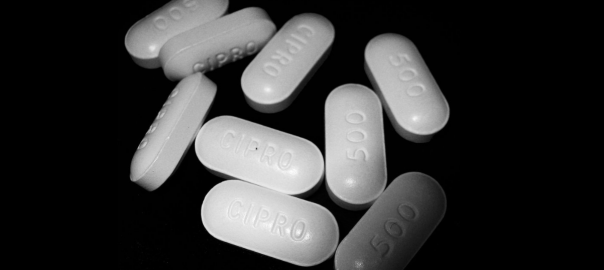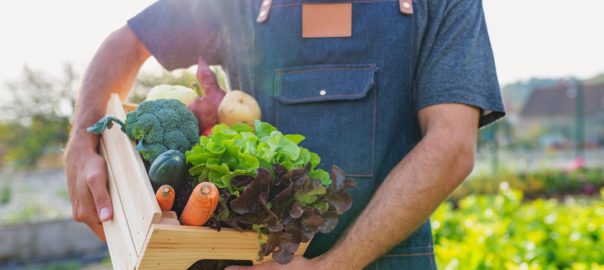What is Glyphosate?
Glyphosate is the active ingredient in Roundup, popular weedkiller, currently used in yards, parks, and farms all over the world. Controversy has long reigned over the use of this highly effective herbicide, due to its potentially dangerous effects on health and on the natural environment. Many highly respected researchers, including Dr. Stephanie Seneff at the MIT Computer Science and Artificial Intelligence Laboratory, have been looking into the effects of glyphosate for many years. As a result of all of this research, there is now a considerable body of evidence against its use in gardening and agriculture.
In agriculture, we have seen a sharp rise in the amount of genetically modified crops, created to be resistant to Roundup, i.e., glyphosate. By modifying the crops, so the thinking went, farmers could spray Roundup on the crops with abandon. Although we have seen an increasing amount of genetically modified crops, we also now have a number of glyphosate-resistant weeds. This, quite obviously, defeats the purpose of spraying crops with herbicide.
Not Just For Weeds
In addition to its uses as a weed killer, glyphosate is also being sprayed on a variety of crops to dry them out before harvesting. Currently, it's being used on a wide variety of crops including:
- buckwheat
- corn
- flax
- lentils
- millet
- non-GMO soybeans
- oats
- potatoes
- rye
- sugar beets
- wheat
This widespread usage is causing more glyphosate to appear in the food supply. Even at levels above EPA guidelines, which have been already been found by experts to be too high. This excessive exposure only adds to the overall body burden and increases the damage to the environment and to our health.
Health Risks
For many people, the biggest concern around glyphosate is its potential effects on human health. The health risks could be wide-ranging. Scientists have suggested links between the use of glyphosate and conditions including auto-immune diseases, autism, and problems with the body's natural microbiome. Some studies even suggest that it could contribute to a range of common cancers, including breast cancer and certain types of leukemia.
The Microbiome
In 2013, a study by Dr. Stephanie Seneff and Dr. Anthony Samsel showed that glyphosate inhibits the activity of cytochrome P450, which is an important human enzyme. By interfering with this enzyme, it increases the damaging effects of other dangerous chemicals, reduces the body's resilience to toxins, and contributes to inflammation. The results of these effects include gastrointestinal disorders which are associated with disturbances in the gut microbiome.
Gout
In another study, Dr. Stephanie Seneff and her colleagues argue that glyphosate-induced changes to the microbiome contribute to the epidemic of gout that is present in the developed world today. Like many gastrointestinal diseases, gout is a condition that is characterized by inflammation. Seneff's findings suggest that traces of glyphosate in the diet could be the primary factor in the recent dramatic rise in gout cases in the United Kingdom.
Cancer
In another study, Dr. Anthony Samsel and Dr. Stephanie Seneff found correlations between the use of glyphosate on crops and a rise in the number of cases of a range of common cancers, including breast cancer, kidney cancer, pancreatic cancer, thyroid cancer, bladder cancer, liver cancer, and myeloid leukemia. These findings reflect the World Health Organization's labeling of glyphosate as “probably carcinogenic.” Some proponents of glyphosate argue that the amounts that are used on food crops are not large enough to cause cancer in humans, but it is difficult to precisely control the size of the dose of glyphosate that any particular individual receives from their diet.
Effects on the Natural Environment
In addition to its potentially harmful effects on human health, glyphosate also poses dangers for the environment. Monsanto, the manufacturer of Roundup, recommends that people do not use the product close to fresh water because of its harmful effects on amphibians and other wildlife. However, it is not clear whether farmers and gardeners follow this recommendation. Even if they do make an effort to keep glyphosate away from sources of fresh water, rainwater, runoff can carry the product into streams and rivers, where it can wreak havoc on the health of fish and amphibians such as frogs. Furthremore, even if glyphosate does not directly kill fish and other wildlife, it can kill plants that these animals depend on for survival, causing ecological devastation that extends all the way up the food chain.
Depleting Nutrients From Soil
According to the National Pesticide Information Center, glyphosate binds tightly to particles of soil and can persist in the ground for up to six months after it is applied. Bacteria will gradually break it down, but many experts argue that the effect on the soil is long lasting. Healthy soil contains a range of minerals that plants need to grow, including magnesium, nitrogen, and phosphorous. Glyphosate can affect the concentrations of these nutrients in the soil, which could affect the ability of plants, including food crops, to grow and produce healthy fruits, vegetables, and seeds.
Friend or Foe?
Many gardeners and farmers rely on glyphosate because it is very good at killing unwanted plants and weeds. However, the dangers of glyphosate mean that its ability to get rid of weeds might not be worth the potential damage to our health and the environment. In particular, concerns over the damaging health effects of dietary glyphosate, as highlighted in the research of Dr. Stephanie Seneff, should give us pause before using glyphosate or purchasing foods that have been grown using this dangerous herbicide. The effects of glyphosate on the natural environment also should also not be ignored, as it could have potentially devastating effects on natural freshwater ecosystems.
Further reading
For more information about gluten and glyphosate:
If you enjoyed this article, please join my community to receive more information and special offers with my free newsletter, Food News You Can Use (I do the research so you don't have to). This concise, informative newsletter gives you updates you need to know about the ingredients for living a healthy life.
[expand title=”Sources”]
- Can glyphosate's disruption of the gut microbiome and induction of sulfate deficiency explain the epidemic in gout and associated diseases in the industrialized world?
- Glyphosate
- Glyphosate's Suppression of Cytochrome P450 Enzymes and Amino Acid Biosynthesis by the Gut Microbiome: Pathways to Modern Diseases
- IARC Monographs Volume 112: evaluation of five organophosphate insecticides and herbicides
- Overview of glyphosate-resistant weeds worldwide
- Weed-Whacking Herbicide Proves Deadly to Human Cells
- Why Is Glyphosate Sprayed on Crops Right Before Harvest?
[/expand]













